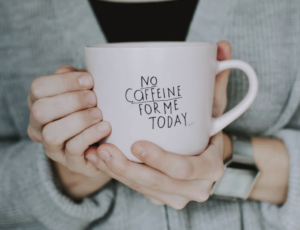 By Richard Tardif
By Richard Tardif
Do you remember Special K? In its heyday, Kellogg’s Special K cereal was marketed as the healthy, weight-management smart choice for breakfast, lunch and snacking. Women, hoping to fit into that red dress, and never having to pinch an inch were targeted. That was in the 1970s to 1990s. Since 2015, women are encouraged to “own it”,a message of self-empowerment, rather than counting calories, and ditching the diet talk.
Kellogg Canada Inc., said the “Women Eat – Own It” campaign is rooted in the insight that every day, almost all Canadian women (97 percent) have an “I hate my body moment.” This data was based on a 2011 Glamour magazine self-reporting[mfn]People will usually underestimate about their own life.[/mfn] survey of more than 300 women. “Own it” is a 60-second spot showing various women looking disappointed with a particular body feature, while a voice over encourages viewers to change their perspective, and, “Tell that little voice inside that tells us we’re not good enough, to shut up.” The ad is still running.
The advert explains to viewers that women are amazing because they eat so they can accomplish goals like marathon running, being a mother and running a business. “We Don’t Doubt It, We Own It,” the main woman in the commercial says at the end, as she’s eating a bowl of Special K Red Berries. Women do indeed, eat.
Eat special, feel special, be special.
 Remember, Kellogg is the same company that once promoted the controversial diet plan The Special K Challenge.[mfn]Special K Challenge, you could lose up to 6 pounds in 14 days if you eat cereal or other Special K products for breakfast and lunch, plus a regular dinner.[/mfn] The challenge involved eating just two tiny portions of Special K (plus one other meal) per day in order to lose weight, and it’s not the only “diet and health conscious” company rebranding.
Remember, Kellogg is the same company that once promoted the controversial diet plan The Special K Challenge.[mfn]Special K Challenge, you could lose up to 6 pounds in 14 days if you eat cereal or other Special K products for breakfast and lunch, plus a regular dinner.[/mfn] The challenge involved eating just two tiny portions of Special K (plus one other meal) per day in order to lose weight, and it’s not the only “diet and health conscious” company rebranding.
Complete with a catchy tagline, “Wellness that Works,”the company known for 55-years as Weight Watchers, in September 2018, moved to align with a modern society in which terms such as “self-care” and “body positivity” are revered, and like Kellogg, the slightest mention of dieting, weight and numbers and negative inner thoughts is met with unruly criticism.
The problem is, the attitude has changed, but the food hasn’t. It is processed. An additional problem is found at the heart of every company. It’s a business.
Wellness and empowerment equals business
Nike Inc. in 2015 released its motivational ‘Better For It’campaign looking at women’s sometimes insecure inner thoughts while working out, and then showed them overcoming those thoughts. Procter & Gamble Co., with products mostly driven towards women, won an Emmy for its Canadian-made, “Like a Girl” campaign, which tackled girls’ self-confidence. “Like A Girl” has over 90 million views on YouTube and over 150 top awards, and it is the most-watched video in Procter & Gamble’s history.
Wellness and empowerment is optimal. Watch the videos. I encourage you to see the message, but not the underlying product objective.
The Special K diet, like WW and others, is a hopeless fat loss fix with its ideals still intact. I doubt any campaign of a company selling processed foods is going to reverse obesity. I have less doubt that empowerment, through eating processed and fake foods, as the message will make any change when it comes to obesity.
Awwwww Just. Eat. Right.
 Richard Tardif is an award-winning investigative journalist, fitness trainer, speaker, author based in Montreal. Richard’s first book Stop the Denial: A Case for Embracing the Truth About Fitness, challenges, surprises, and inspires you to embrace a fitness lifestyle that will work in achieving your individual goals.
Richard Tardif is an award-winning investigative journalist, fitness trainer, speaker, author based in Montreal. Richard’s first book Stop the Denial: A Case for Embracing the Truth About Fitness, challenges, surprises, and inspires you to embrace a fitness lifestyle that will work in achieving your individual goals.
Richard’s second book, Still in Denial: The Reasons for Embracing the Truth About Fitness, will be released in May 2019.






